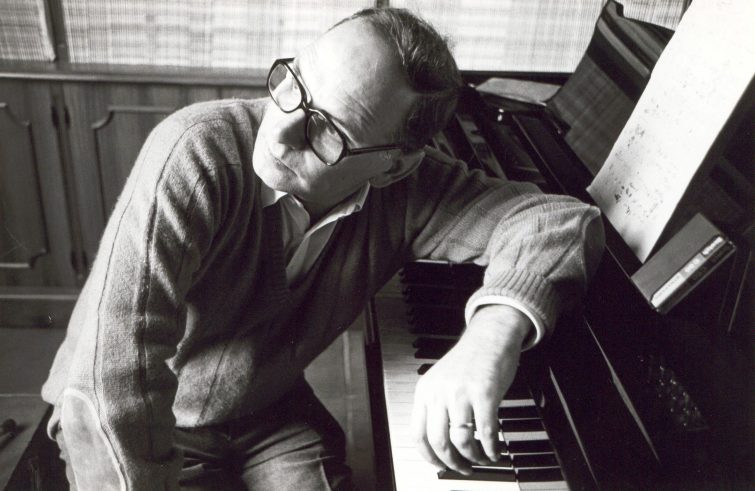
“He was grumpy and irritable when creating music, but also capable of deep tenderness.” It’s the portrait of Ennio Morricone, who died in Rome at the age of 91 from the complications of a fall, according to Monsignor Marco Frisina, composer, director of the Choir of the diocese of Rome, bound to him by a deep friendship based on mutual professional esteem. “A great Italian composer. He considered himself an heir of the Roman musical tradition”, continued Frisina: “His wife Maria always said: when he will no longer be able to compose he will die.”
Who have we lost today?
A great Italian composer. He was Italian in style, in language, in tradition and he wanted to be Italian. He was a son of the 20th century, a master figure of modernity. As President Mattarella said, he successfully brought together popular and classical music, from Vianello’s song to the Mass for Pope Francis. He perceived himself as heir to the Roman School.
He was extremely rigorous. He could be grumpy and irritable when creating music, but also capable of deep tenderness. He possessed the typical inherent contradictions of a genius.
In his public appearances, people were impressed by his humbleness and unpretentiousness…
He spoke in Roman dialect, in which he would say: “all I can do is compose music.” He was at his ease when he was in the recording studio, rehearsing or conducting an orchestra. Elsewhere he would always be embarrassed, shy, avoid people. Music was his entire world: suffice it to say that he wrote the music for some 500 films.
![]() Yours has been a long friendship: how did it start?
Yours has been a long friendship: how did it start?
I met him the first time at a classical music concert, the program included a piece written by myself and one written by him. It happened in 1990, I was 35 years old and he was already a legend. “Nice piece,” he said. When Lux came up with the project of the Bible on TV I was a consultant, and I was asked to propose to Morricone to compose the music. I went over to his place and met him in a different capacity. He allowed me to enter the closed room where he composed, his sancta sanctorum. It was a deeply emotional experience.
A father-son relationship based on mutual esteem developed thereafter.
He couldn’t compose the soundtrack because he had another commitment, and so I had to write it. Immediately after it aired, he called me and said: “with all that music you could have made three films.” We were also in touch over personal issues, and in 2016 I proposed that we direct together the “Concert with the poor and for the poor” in the Paul VI Hall. He accepted immediately, even though he was already sick, we had to postpone because of problems with his back.
I keep a picture of that day that moves me every time I see it: he was enthusiastic, I saw how happy he was.
I had had a stool chair prepared for him to sit on, but he never used it, despite his very recent back surgery. He was transformed by music.
The 2016 Oscar dedicated to his wife Maria touched everyone’s heart.
That dedication was filled with his tenderness. He had a wife, four children. It wasn’t an easy life, as it is sometimes difficult for other members of the family to relate to personalities like him, who can sometimes be overwhelming. For him, the family was a crèche, even though he spent more time outside than with them, either alone writing or away for concerts.
His wife Maria used to say, “when he will no longer be able to create music, he will die”. And that’s what happened.
From Sergio Leone to Quentin Tarantino, including Giuseppe Tornatore, just to mention a few names. Morricone has succeeded in articulating his art spanning very different genres, but always under the banner of dialogue. Is he an example also for today?
He would compose for free even with young filmmakers. He composed the musical score of Tornatore’s first film for free out of respect for the young director. Instead, he charged American directors. He didn’t act out of hearsay in his relationships with people:
to befriend someone, he had to think highly of them.
It happened with me too. He put me to the test, almost to the point of mistreating me. Then, in 1993, when I gave a concert at the Foro Italico on Abraham’s music, he asked me for an encore. He yelled it at me in Roman dialect from the front row. He never asked to see one of my scores, even though I always asked his opinion because I was terrified of his judgment. He vouchsafed for me with American co-producers, simply on the basis of esteem. “And don’t say you showed it to me,” he would recommend. He was wonderful.
What is the message that Morricone left to the world of music? What is his legacy, for young people in particular?
I hope that young people will be taught his rigour and his ability to communicate.
He used to say that music is something that can either be there or not there at all, no matter the composer’s name.
If he saw that what he was listening to was music, you were worthy of his attention, otherwise you meant nothing. Music is for everyone’s enjoyment. It’s one of the lessons Morricone has left for us to cherish. He was capable of great sophistication, a research into sounds that made use of the most original and innovative elements. We all know his musical scores by heart, we even hear them in commercials, owing to their extraordinary communicative power, capable of generating emotions that touch our hearts.










